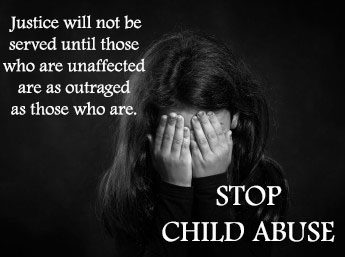8 Domestic Violence Myths That We All Should Recognize
It’s easy to make assumptions when you have no personal experience to draw from about a situation. For example, when it comes to domestic violence, you might think that victims of abuse don’t call the police because they don’t want their abuser to get into trouble. Although this might be true in some situations, did you know that many victims won’t call the police because they don’t believe the police can help them?

You also might wonder why someone would stay in an abusive situation, thinking to yourself that you would leave immediately. But, can you fathom the possibility that leaving might be impossible for a victim without some form of outside help? Read on to find out about this and other domestic violence myths.
- Myth: The Victim Can Leave at Any Time
Domestic violence situations often include an abuser who attempts to control all aspects of the victim’s life. For example, victims are often financially dependent on their abuser, which means that it could be difficult, if not impossible, to flee without financial resources. Abusers also try to isolate their victims, preventing relationships with friends or family members who would be likely to help. To further control their victims, abusers often don’t allow their victims to have a job or access to transportation. And, if children are involved, the abuser could use them as leverage to keep the victim from leaving — even making threats to the person’s life.
- Myth: The Victim is Lying About the Abuse
It’s true that there are people who are opportunists, and they will play the victim — even if there isn’t actually a domestic abuse situation happening.As a result, it can be difficult to determine if they are being truthful or not. According to Matthew Hand,one of the domestic violence lawyers in Denver who deals with such cases, “There are at least two sides to any story, and in heated domestic conflicts, those stories are often very, very different.”
Even so,if a someone claims to be a victim and asks you for help, you should assume that they are telling the truth and consider making an effort to help the person as much as you can. Law enforcement and attorneys can sort out the details of the case and determine the facts.
- Myth: The Victim Caused the Violence to Happen
People who are victims of domestic abuse do not seek out the abuse. Instead, they often learn the abuser’s patterns and strive to keep from triggering the abuser’s wrath.
- Myth: Victims of Domestic Violence are Poorly Educated
Although some victims may be poorly educated, there are also victims who are highly educated. Lack of education has nothing to do with whether a person will become a victim of domestic violence.
- Myth: Women Are the Only Victims of Domestic Violence
Often women are the victims of domestic violence, but their children living in the household are, too. This is true even if the abuser doesn’t direct his anger and violence toward them. Children can be impacted by what they witness. Men can also be victims of domestic violence.
- Myth: Children Who Witness Abuse Grow Up to Be Abusers or Victims
Although this can and does happen, not every child who witnesses abuse will grow up to be an abuser or victim. A child who grew up in an abusive environment may do everything in his power to be a rational, calm, kind individual as an adult.When teens are victims of abuse from boyfriend or girlfriend, that doesn’t mean that they will fall into a pattern of abusive relationships.
- Myth: Injuries Mean the Person is a Victim of Abuse
Sometimes in domestic violence situations, the abuser will have injuries that were inflicted by his or her victim. However, the injuries are a result of the victim trying to defend herself, not as result of abuse.
- Myth: Domestic Violence is a Private Issue and Outsiders Shouldn’t Intervene
When a pattern of domestic violence is occurring with a family, there often is no help for the victim because the person that would be the logical pick to help is actually the abuser. If you suspect or know that domestic violence is an issue for someone, ask how you can help. The way that you help could be something as simple as providing a safe place to talk or finding resources to help the person.
It can be dangerous to intervene in a domestic violence situation. But it could make a big difference for the victim. If you’re scared or unsure of how to help, contact a domestic violence helpline representative.


